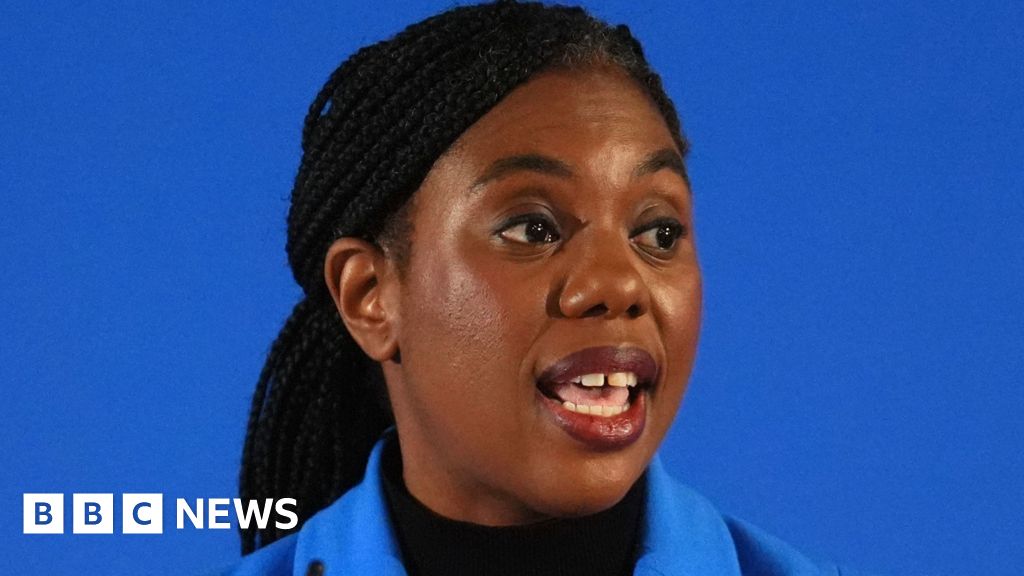Receive free War in Ukraine updates
We’ll send you a myFT Daily Digest email rounding up the latest War in Ukraine news every morning.
What would a press secretary in a Russian embassy in the west be forwarding to the Kremlin these days? The question was posed to me by a German official early in Ukraine’s counteroffensive. I was reminded of this during the Nato summit last week — and even more so after the revelation of talks between former US officials and Russian diplomats.
As Nato debated the future of Ukraine, the British media were so obsessed with a scandal involving a BBC presenter that the summit barely made a front page. So yes, happy times for Russian diplomats in London keen to relay to the Kremlin the message they know it wants to hear of a distracted, narcissistic UK.
The German official was being playful but making an essential point: it is all too credible to picture Vladimir Putin still being fed self-reinforcing lines. What mileage is there for an aide to tell him the truth?
And this is where the disclosure of April’s talks between American former national security officials and Russian diplomats, including foreign minister Sergei Lavrov, comes into play. After months of the two armies slugging it out at terrible cost with few changes to the frontline, it is all the more important for the west to be able to seek to influence Moscow’s mindset by delivering hard truths.
The revelation by NBC of the talks — in New York and including Richard Haass, the outgoing head of the Council on Foreign Relations — prompted accusations of betrayal. For many in Ukraine, the idea of contact with representatives of a state which has unleashed such slaughter is unconscionable. Others fear that indulging any contact is to fall into a Russian trap leading to a shabby deal in which Ukraine’s interests will be betrayed by western realpolitikers just keen to see the war end.
The latter concerns are only natural. The Minsk accord of 2015 that ended the first phase of Russia’s invasion faced that very charge. The 1995 Dayton deal after the Bosnian war is also salutary. It carved up Bosnia and Herzegovina in a way that in effect rewarded the aggression of the Bosnian Serbs.
Ukraine’s fear is that it will end up being steamrollered into a grand bargain in which it has to abandon its formal goals of defeating Russia and regaining control over all its territory including Crimea. Some officials in Europe cite Finland’s ceding of 10 per cent of its land to the Soviet Union after the 1939-40 Winter War as an analogy for a deal.
So yes, those engaged in back-channel talks will be all too aware of the danger of unintentionally being sucked into an “understanding” of Russia’s position that veers close to appeasement.
And yet the holding of secret talks and at multiple levels is essential. The April talks are just one of a number of back-channels and not the most significant, not least given that Lavrov is not a key Kremlin player.
For now, neither Ukraine nor Russia is remotely ready to consider a settlement. The war will probably not end in the next year, warns a European government minister. The west is still hoping for a breakthrough via the counteroffensive, slow as progress has been so far. It is worth remembering that after D-Day, allied troops fought for more than two bloody months in Normandy before surging through the German lines. It is just possible that Russian troops will suddenly, wonderfully, crack: as the late military historian John Keegan stressed, never underestimate the importance in battle of morale. As for Russia, it will be pinning its hopes on the counteroffensive failing, and thinking it should wait to see how Donald Trump fares in the 2024 US election cycle.
But whether there is a Russian rout or a stalemate, as increasingly Ukraine’s backers fear is the most likely scenario, at some stage negotiations are all but inevitable, and the more contacts there are in advance the better.
Throughout history such an approach has been contentious. The secret talks over South African apartheid in the 1980s would have appalled many on both sides if divulged, but they helped pave the way for democracy.
The uncertain terrain of Russian politics makes this all the more imperative. Given the bloodbath he presides over, Putin’s opponents are understandably affronted by the argument that we should be wary of a post-Putin order lest his successor is worse. Of course, ideally for the west a Russia would emerge freed from Putin’s kleptocracy.
But there are also real concerns about what might happen in the event of a dissolution of his regime. On the minds of western officials is how a collapse of the Russian state could lead to mayhem akin to the collapse of Yugoslavia.
The west needs to let Moscow know how serious we are in our resolve. It also needs to work out who to talk to and who to trust, after long years in which the value of Russia expertise has been downgraded in western foreign ministries.
In recent history, time and again autocrats have shown a stunning capacity for misreading their enemies’ intentions, and vice versa. Slobodan Milošević and Saddam Hussein spring to mind. Somehow the west has to pierce the self-delusion shrouding Putin’s court.
I may of course be underestimating the spine of Russia’s press secretaries. But even if so, we need more not fewer back-channels.
alec.russell@ft.com
Credit: Source link











